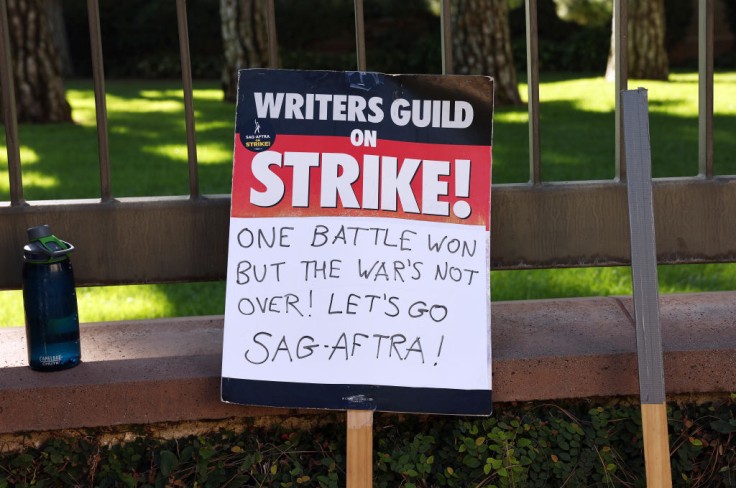Hollywood writers finally have a say about the use of generative AI in productions.
Members of the Writer's Guild of America (WGA) have officially accepted the previously tentative deal the union made with the Alliance of Motion Picture and Television Producers (AMPTP), ending the strike the former organized since early May.
The strike the WGA waged against the AMPTP lasted 148 days.
WGA-AMPTP Deal Particulars
The WGA's deal with the AMPTP was extensive, but it's something the former's members are happy to work with. It does cover writers' pay, working conditions, and even the use of AI in the workplace.
Speaking of AI, the WGA got what it wanted concerning the use of generative AI in writing. According to the summary of the deal's particulars, companies can't have AI write or rewrite any literary material, and AI-generated material won't be considered source material under the new deal.
As such, companies can't use AI-generated material to undermine a writer's credit or separate rights. Additionally, A writer can choose to use AI when performing writing services, but only if the company consents to it and the writer follows applicable company policies.

However, the company can't require the writer to use generative AI tools to perform writing services. Furthermore, the company must disclose to the writer if any of the materials given to them were AI-generated or incorporating AI-generated material.
Lastly, the new deal prohibits the exploitation of writers to train generative AI tools, and the WGA reserves the right to assert as such. According to The Verge, this reservation meant that if the laws change or AI training reaches a point of contention for its members, the WGA can call that exploitation.
These regulations came as a relief to the WGA's members, as the strike came as a result of its wish to put a new contract with the AMPTP with better arrangements, including job protection from generative AI tools. You may recall that the WGA wants the AMPTP to set regulations against AI that would ultimately replace writers in the production process - regulations that the WGA got in the finalized deal.
The Other Side Of The Coin
Unfortunately, even if WGA has officially ended its strike against the AMPTP, productions might not fully return to normal anytime soon. While the WGA got what it came for from the AMPTP, the same cannot be said for the Screen Actors Guild - American Federation of Television and Radio Artists (SAG-AFTRA).
The union representing about 160,000 performers in the entertainment industry has yet to end its strike against the AMPTP. While there is no progress in the two parties reaching an agreement, the union has recently voted to authorize a strike against video game companies if its talks with Hollywood don't bear a suitable deal, per a Reuters report.
According to NBC News, the vote was a landslide victory in favor of organizing a strike against video game companies, with 98.32% of those who cast ballots voting in favor of authorizing a strike. Only time will tell which will happen first: SAG-AFTRA calling a strike against video game companies or the union getting a suitable deal from Hollywood.
SAG-AFTRA has the same concerns as the WGA as far as AI is involved. You may recall that the AMPTP wants to protect background performers' digital likenesses through AI, but only get one day's pay, and possibly never work again as producers intend to use their scanned likeness in perpetuity in any project without consent and compensation.
Related Article : WGA Reaches 'Tentative Deal' With Studios-Will the Strike End?









